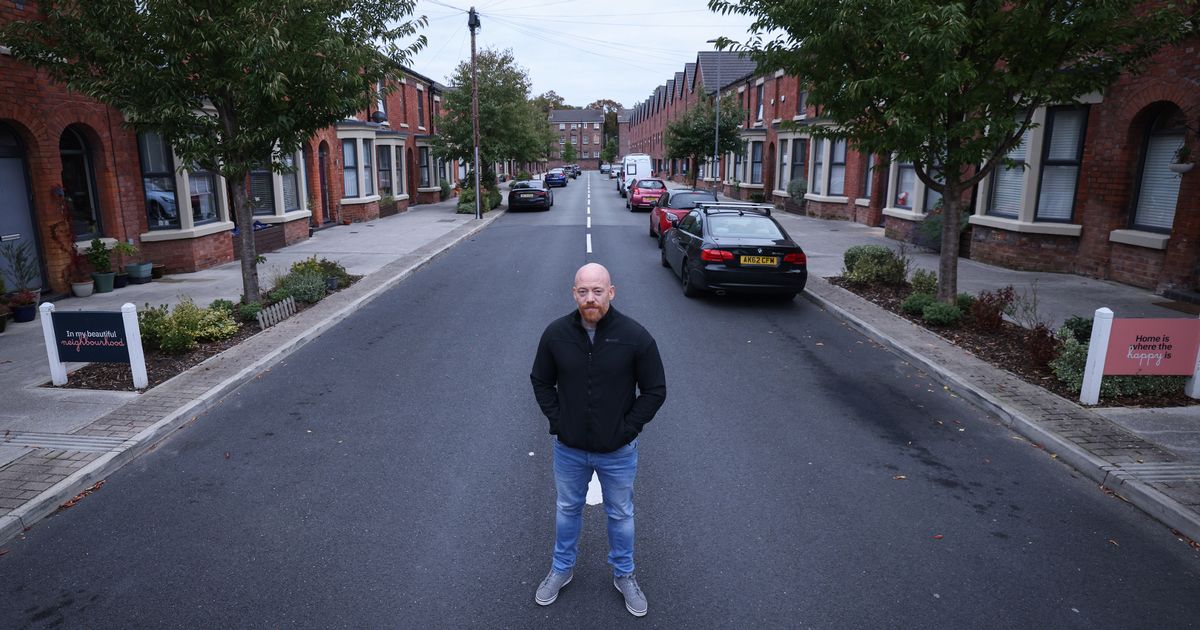With rental prices increasing in Merseyside, the ECHO looks at its impact and how it could be changedDan Haygarth Liverpool Daily Post Editor and Regeneration Reporter
06:00, 28 Sep 2025
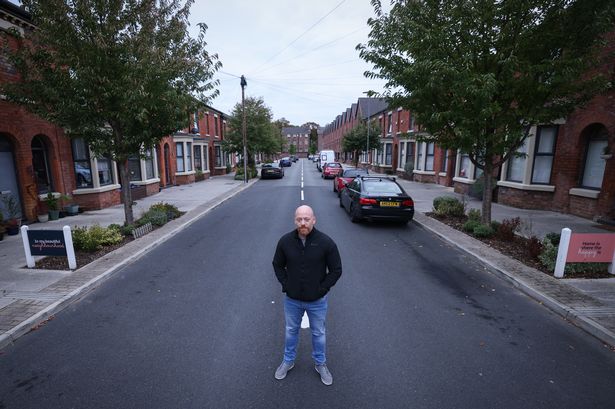 Lee Brady(Image: Liverpool Echo)
Lee Brady(Image: Liverpool Echo)
“Originally everyone was sold a dream. You move in for your forever home and you buy into that – because it’s a fantastic, new, clean house”, says Lee Brady.
The 43-year-old from Norris Green is standing among the terraces on the famous Welsh Streets in Toxteth, where he has rented a home for the last four years. But like many in the area, he was hit with a potential price rise which made him consider if he could stay living there.
Lee adds: “It’s a little bit pricier than you’d want to pay, but it’s a house you plan on staying in. Then you get your first and second rent increase and start thinking ‘how long can I realistically stay here?’
“That in itself signifies the issues with the housing situation at the moment – my wages haven’t changed but now I’m paying more out in rent.
“So, the choice is earning more money or downsizing and move. You’ve got your kids settled in school, my kids have only ever known that area, they grew up around there. They don’t want to move, they know their friends, things like that.”
Lee was part of a recent campaign from residents in the Welsh Streets to fight a 30% rent increase by landlords Placefirst, which could have led to a potential rise of £300 per month. Alongside renters’ union Acorn, the residents won that battle in July, securing a deal that has kept the rise to less than £60 on average.
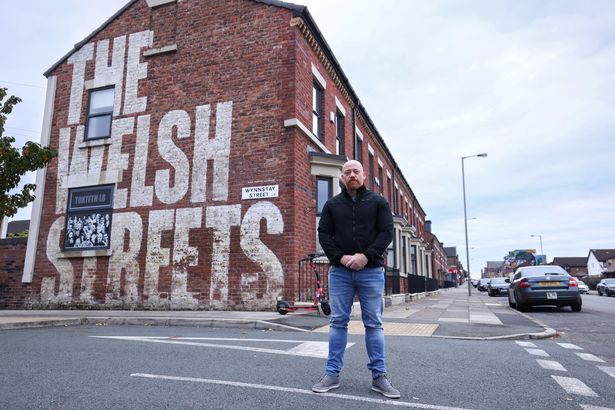 Campaigner Lee Brady pictured in the Welsh Streets in Toxteth(Image: Liverpool Echo)
Campaigner Lee Brady pictured in the Welsh Streets in Toxteth(Image: Liverpool Echo)
Placefirst said it had “listened carefully” to Welsh Streets residents and no household would experience an increase of more than £80 per month, capping rises at 6%. Alongside the rent cap, Placefirst agreed to address issues around disrepair, communication and treatment of tenants, and have agreed to formally recognise a new residents’ association.
The fact that residents had to campaign illustrates the difficulties of renting in modern Britain, according to Lee. Earlier this week, the ECHO reported that average private rents in Liverpool increased by £75 a month to £864 in the year to August 2025, representing a £301 monthly rise from 2015.
Those price rises will leave people with nowhere to turn, according to Lee, who has joined the Liberal Democrats since being involved in the Welsh Streets campaign. He explains: “It just shows the issue with renting in general. People are profiting but you’re expected to go without, use less, have less, and to pay people and line their pockets.
“It’s not only just renting, it’s everything in the economy at the minute. We’re so squeezed – the bare necessity of what you need to survive in life is a roof over your head.”
It is an issue which the Labour government has pledged to tackle head on. Sir Keir Starmer’s party has arrived in Liverpool for its 2025 conference – the second since he took the keys to the country’s most famous home – and the issue of housing will be central to proceedings.
The government inherited a housing crisis that has been worsening for years, meaning home ownership has become a pipe dream for many. According to Nationwide, a 20% property deposit is now equivalent to 110% of the pre-tax income of a typical full-time employee – a record high and up from 102% a year ago.
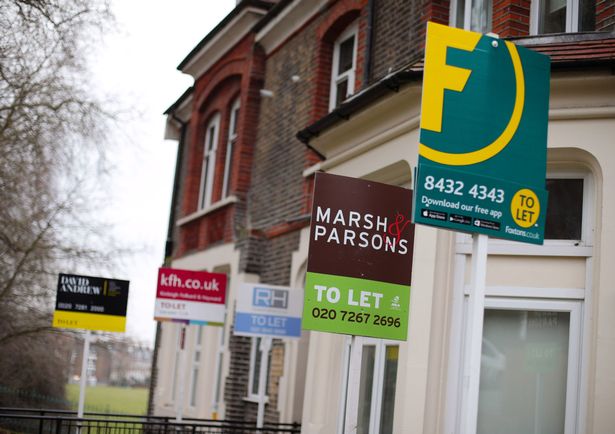 Rental prices across Merseyside have shot up(Image: Yui Mok/PA Wire)
Rental prices across Merseyside have shot up(Image: Yui Mok/PA Wire)
That situation has caused a perfect storm – people are spending so much on rent, at times for homes in poor condition, and they cannot save for huge deposits. It is a storm which is hitting Liverpool particularly badly, according to Martin Mawdsley.
Martin, 31, is secretary of Acorn’s Liverpool branch and was heavily involved in the union’s campaign in the Welsh Streets. Originally from Runcorn, Martin joined the union due to difficulties in his own flat, which he said was “falling apart”, and now works to protect the rights of those experiencing problems in their homes.
“There’s definitely a housing crisis”, he tells the ECHO. “If I’m being honest, I don’t think housing has ever been this bad in living memory.”
“Many renters face issues like disrepair, being left by landlords who aren’t really interested in sorting it out. Liverpool, in particular, is in a bad situation.
“Earlier this month, some statistics came out about the average rent increase. The rest of the country was around 2 to 2.5%. Maybe just under 3%, but in the North West it’s around 9%.
“Liverpool has been particularly affected by it. For a while, we know Liverpool has been singled out as a target for investors, people are being pointed towards Liverpool when they want to buy up some houses to start making profits on.”
There are two main levers which the government could use to alleviate this crisis, according to Martin. The first of them is building more homes – something Labour has said is a priority and will allow for economic growth. Until this is done, he believes, the price of housing means the dream of ownership will remain just that.
“It’s impossible for so many people, unless their parents are able to support them”, Martin says. “It can be impossible to pay for a deposit, people are paying so much in rent – paying someone else’s mortgage and a bit more, they don’t have anything left over to save.
“We hear all the time from people who were able to buy a house a generation ago, who say ‘cancel Netflix, don’t buy nice coffees’, not really realising just how expensive it is and how expensive deposits are. Even then, with a 10% deposit, you’re looking at £15,000 or £20,000 to buy most houses in Liverpool.
“My parents were able to buy a house just before it became a crisis and it became unaffordable. I think since my wife and I moved in together, we started renting about ten years ago, we’ve been thrown into the deep end.
“Some of the things that I regularly see really affect me and shock me now. I don’t think it’s ever been this bad, until you go back to the Victorian era. In living memory, it’s definitely not been this bad.”
In her first speech as Chancellor of the Exchequer after Labour’s general election success last summer, Rachel Reeves announced government funding for a housing development at Central Docks on the Liverpool waterfront. Last year, Liverpool City Council’s cabinet agreed to accept the £55.2m Brownfield Infrastructure Land grant funding from Homes England.
 A new CGI showing how the Central Docks development at Liverpool Waters could look(Image: Peel Waters)
A new CGI showing how the Central Docks development at Liverpool Waters could look(Image: Peel Waters)
Central Docks is the largest brownfield site in the city and the biggest of the five planned neighbourhoods within property giant Peel’s Liverpool Waters regeneration programme. Described as an “ambitious 30-year vision to completely transform the city’s northern docks”, the £5bn Liverpool Waters scheme spans 2.3km along the banks of the River Mersey to the site of Everton’s new stadium and will be key to delivering more homes the city needs.
The Central Docks neighbourhood is found around 1km north of the city centre, to the west of Regent and Waterloo Road and the north of Jesse Hartley Way. This site will be converted into a new neighbourhood consisting of more than 2,000 homes and a new park, called Central Park.
Earlier this month, Peel appointed construction firm GRAHAM as the main contractor for the site. The ECHO has also reported a planning document for the project said all infrastructure and parks are planned to be completed by December 2027, subject to GRAHAM and Peel agreeing T&Cs, and obtaining final grant approval.
The government’s approach to building and its investment is welcomed by Chris Capes, director of development for Liverpool Waters. He tells the ECHO: “The government’s support for Central Docks is a significant milestone for Liverpool Waters and the city’s regeneration ambitions.
“Peel Waters’ collaboration with Homes England is instrumental in unlocking the potential of this site, enabling the delivery of up to 2,350 new homes for a mix of ages, incomes and needs, new commercial space to support job creation, and impressive amounts of beautifully designed public realm for individuals, families and visitors to enjoy.
 Peel’s Chris Capes, pictured in 2022(Image: Liverpool ECHO)
Peel’s Chris Capes, pictured in 2022(Image: Liverpool ECHO)
“We welcome the government’s focus on accelerating delivery and we would like to see this momentum continue across the whole regeneration process. We look forward to continuing our work with government partners to ensure Liverpool benefits fully from these opportunities and investment.”
However, for Martin, it is key that the government’s investment allows for building the right type of houses. He explains: “You need to make sure we’re building houses of decent quality, which have services like schools and shops or various amenities around – you’re not just building anywhere.
“If we’re just building any houses as quickly and cheaply as we can, then down the line there might be issues with that. We know there have been plenty of stories from around the country where people have moved into new houses and the staircases have been falling off the walls.
“We don’t want things to be built without any care and we would like the majority of those houses being built to be council houses or at least in some way affordable, not just building for the sake of it, in the hope that in flooding the market, the price will come down.”
The government tells the ECHO constructing new homes in Liverpool is a priority. A spokesperson for the Ministry of Housing, Communities and Local Government, now led by Steve Reed, says: “The Housing Secretary has promised to ‘build, baby, build’ and we are leaving no stone unturned to give people the homes they desperately need.
“The best way to reduce rents is to boost supply, and we will build 1.5 million homes to restore the dream of homeownership in Liverpool and across the country.
“And through our Renters’ Rights Bill we will give people security, empower tenants to challenge rent hikes and ban section 21 no fault evictions.”
The Renters’ Rights Bill, the second key force for change Martin cites, is in the final stages of going through parliament and it is hoped it can give tenants more power. Martin welcomes it but wishes it would go further.
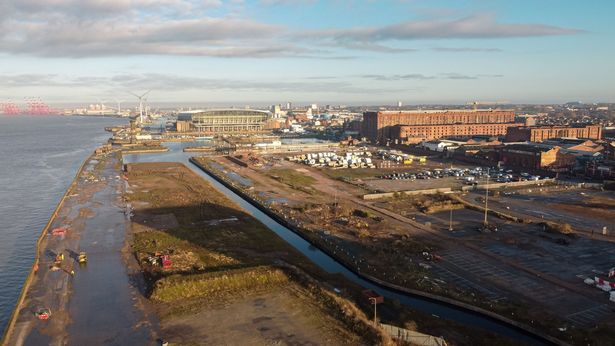 The land that will become Central Docks as part of Liverpool Waters(Image: Peel Waters)
The land that will become Central Docks as part of Liverpool Waters(Image: Peel Waters)
He explains: “The bill is probably the biggest change to the rights that renters have in 50 years or so – it’s massive. Banning no-fault evictions and having open-ended contracts gives people a lot more freedom to move when they need, to stay in the house as long as they want to, as long as they’re living there properly.
“If they’re not doing anything wrong, they know they’re going to be safe. Being able to challenge rent rises as well, you’re going to have a bit more power for that.
“At the moment, if you try to challenge a rent increase through a tribunal, the tribunal can turn around and say the landlord can charge even more. That’s going.”
“We definitely think it doesn’t really go far enough. I’ve mentioned rent increase challenges, but that’s only really touching the sides at best for affordability. It definitely needs to go a lot further.
“Wales is looking at introducing rent controls, Scotland is introducing them, or should be, for some types of rented houses. There’s a bit of a risk that England is going to get left behind if we’re not doing anything to really tackle affordability of private rented housing.”
Such controls would be a welcome addition for Lee, who says: “My partner and I have got good jobs but we struggle. I work in IT and I’ve also got a small business.
“My salary covers my bills and rent and then the business generates the money I actually live off. It’s stifling – you study hard for a job, you work your bloody a**e off, never seem to stop, but you seem no better for it.
“All my money constantly seems to get handed over to someone else. It leaves so many people in a situation where they haven’t got money saved for a rainy day. If you find yourself sick or without a job, you’re stuffed.”
Regarding the Welsh Streets, Placefirst declined to comment when approached for further comment from the ECHO.
